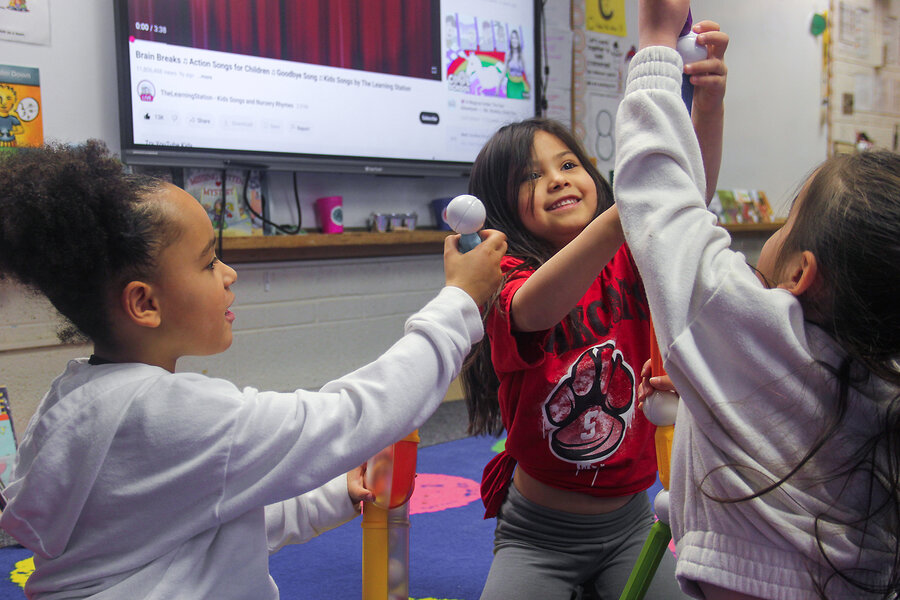Now Reading: Nebraska School District Paves the Way for Students with Disabilities to Succeed
-
01
Nebraska School District Paves the Way for Students with Disabilities to Succeed
Nebraska School District Paves the Way for Students with Disabilities to Succeed

Swift Summary
- In Nebraska, educators are working to integrate students with disabilities into general education classrooms for most of the school day under the “Journey to Inclusion” program launched in 2022.
- The state has allocated nearly $1 million in federal COVID aid toward inclusive education initiatives, including training programs for teachers and administrators on co-teaching strategies and research-based inclusion methods.
- Nebraska boasts one of the highest inclusion rates nationally, with 88% of kindergarteners spending most of their time in general education classrooms, second onyl to one other state.
- Results are promising: between 2021 and 2024:
– Math proficiency among third-grade students with disabilities increased from 18% to 29%.
– Graduation rates improved from about 65% (in four years) to nearly 70%.
- Scottsbluff Public Schools prioritized inclusion by introducing daily intervention blocks, co-teaching approaches, classroom collaborations between special and general education teachers, and inclusive learning tools like flexible seating options.
- Challenges include staff shortages (especially special education teachers), uneven rollout across districts, gaps in resources among rural schools, and potential impacts on funding due to federal budget cuts or policy shifts.
Indian Opinion Analysis:
Nebraska’s push for classroom inclusion highlights an innovative approach toward integrating disabled students into mainstream educational settings. By focusing efforts on teacher collaboration, evidence-based practices like co-teaching models ensure that both academic progress and social integration are prioritized for all children. The results observed-rising graduation rates along with marked improvements in math proficiency-reflect that thoughtful policy implementation can yield tangible outcomes.
From india’s outlook on ramping up inclusive education policies under its Right To Education Act (RTE) framework could learn lessons here. Large-scale teacher training programs tailored specifically for managing diverse needs could help achieve better equity across schools nationwide while reducing stigmatization attached With strained budgets rural challenges relatable parallels emerge Opportunities similar solutions Enrich Our disability centered educational frameworks remain extensive partnerships focused enhancement Over Long-Term Key lies balance accessibility wider considerations future-limiting reform scope Plans however need cautious evaluation given Resource limits.-






















